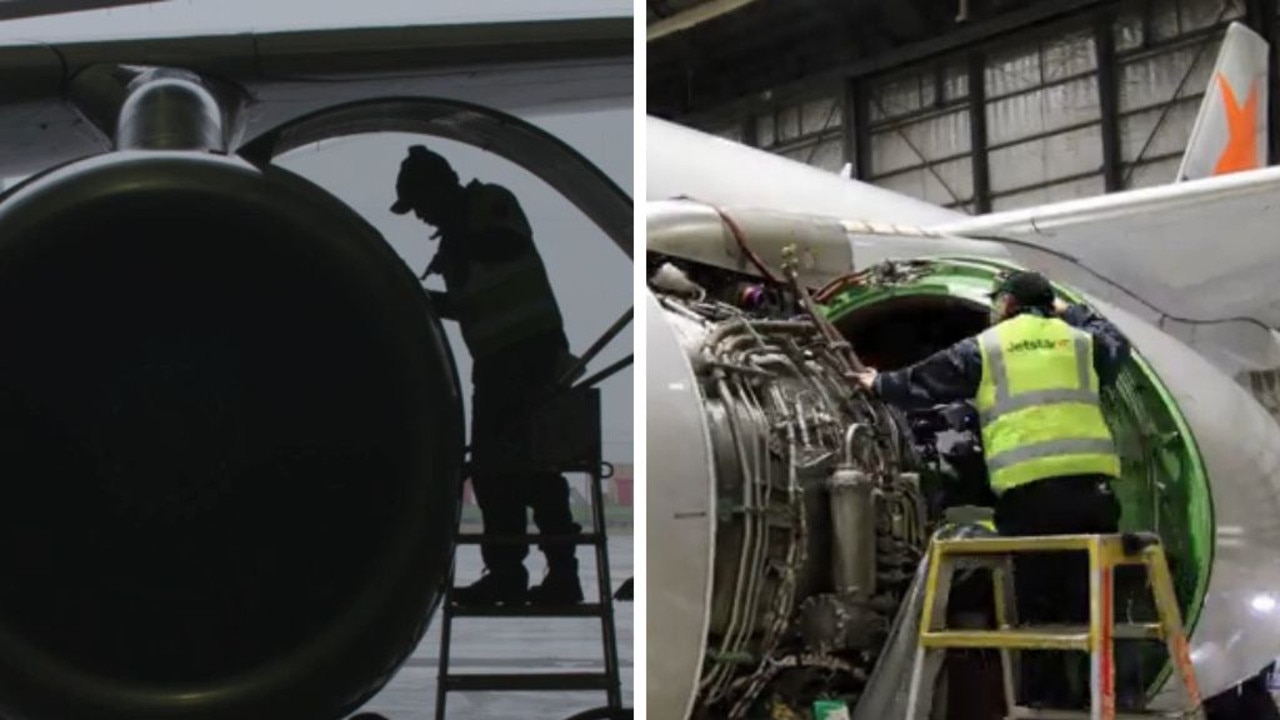Qantas to store A380 superjumbos in Mojave Desert until 2023
They were the flagship of the Qantas fleet and loved by customers but now they could spend up to three years sitting idle as demand crashes.
Qantas has said it will send its fleet of flagship superjumbo aeroplanes to desert storage for at least the next three years.
The Airbus A380 jets, which usually service international routes to and from London and Los Angeles, will instead fly to the US’ Mojave Desert and remain there until the middle of 2023 at least.
It was just one of a slew of announcements on Thursday regarding the future of the carrier which will also see it shed 6000 jobs and keep another 15,000 staff furloughed until the end of the year as it battles the downturn caused by coronavirus.
RELATED: Qantas’ announcement is bad news for Aussie travellers
The A380 double decker jets are the cornerstone of the Qantas fleet featuring luxurious first class up the front as well as economy at the rear.
Qantas operates 12 of the type, flying them out of Sydney and Melbourne airports. But with the prospect of a quick up tick in international demand diminishing with borders closed, the flying kangaroo has decided it won’t be able to fill the enormous plane for years to come.
Customers love the space on the huge A380 and gimmicks like bars in the sky, but airlines are less keen with the plane only making economic sense if it’s almost full. They prefer smaller jets that can go further like the Airbus A350 and Boeing 787.
Manufacturer Airbus has already pulled the plug on the type with no more to be built after 2021. Although, it’s so new the planes in service could easily keep going well into the 2030s.
The dry environment of the desert is a favourite climate for storing aircraft and means they can stay in good condition and relatively quickly be brought back into service. Singapore Airlines has stored a clutch of its A380s in Alice Springs.
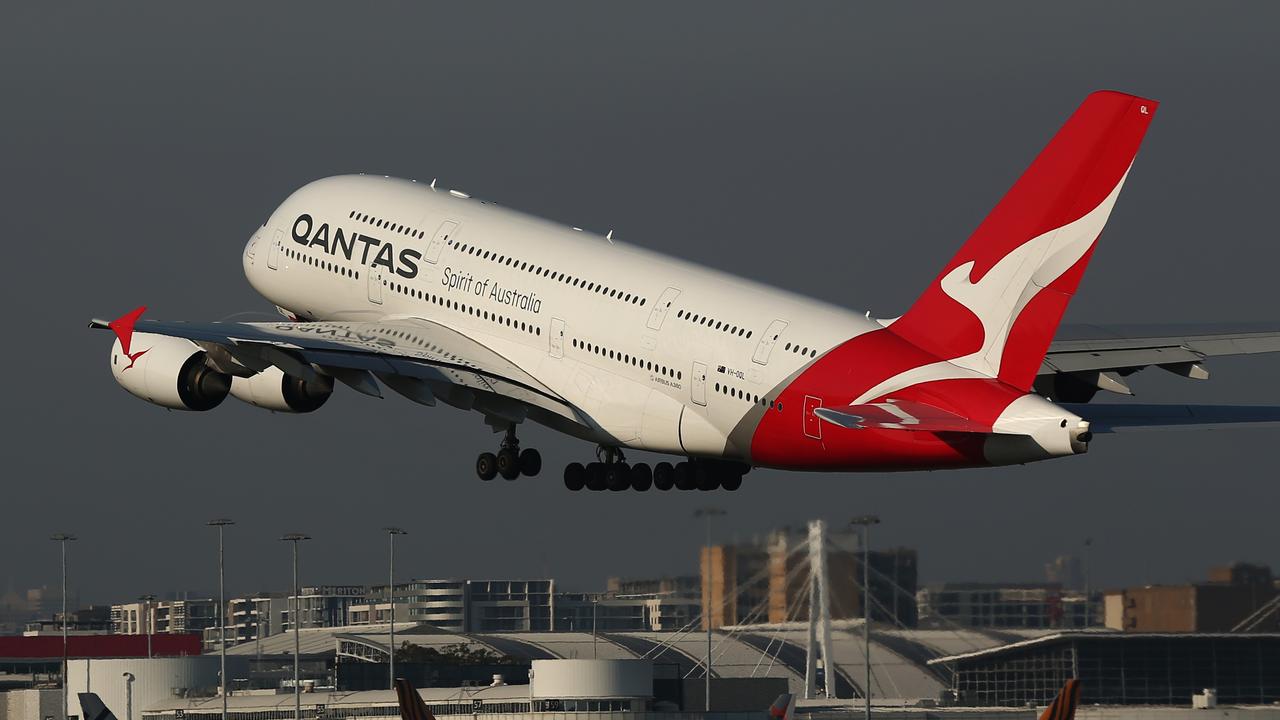
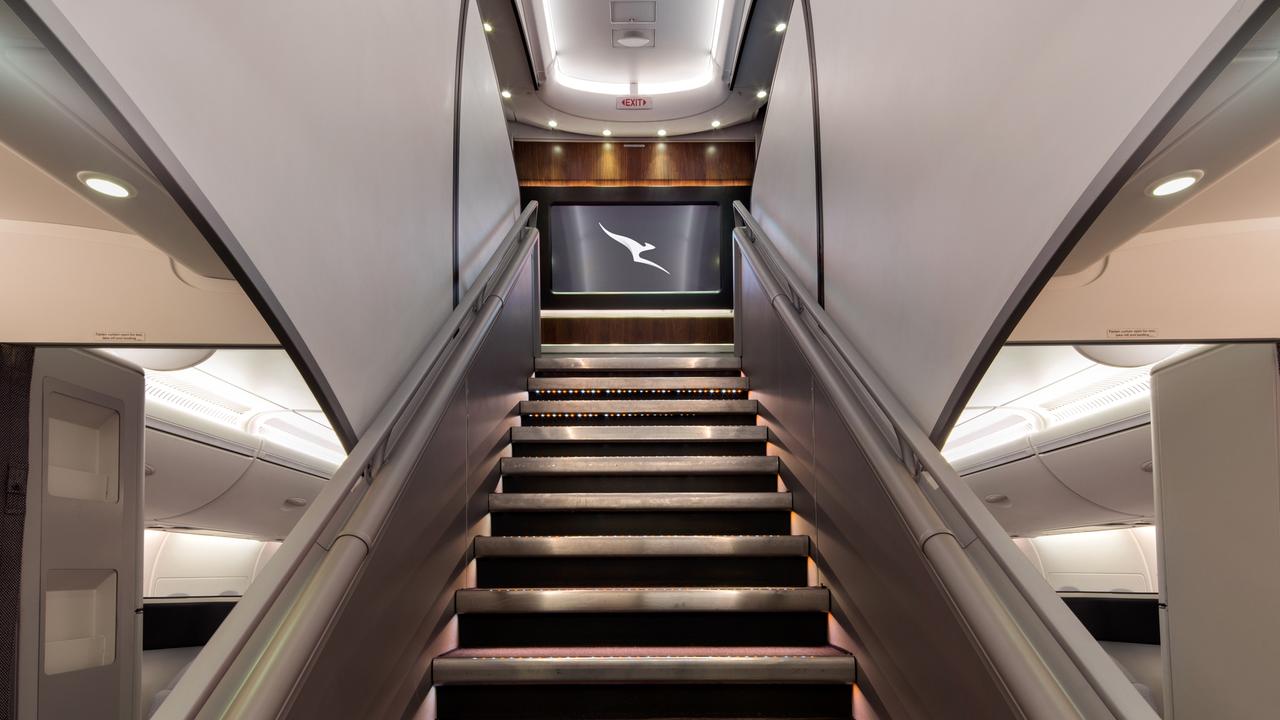
At least Qantas has said it plans to hold onto the A380. Some airlines have said they see no future in the type. Air France announced it will immediately retire its superjumbos. However, Emirates – which operate scores of A380s – has said it will start flying them again between Dubai and Paris and London imminently.
RELATED: Airbus announces end to production of the A380 superjumbo
While Qantas’ A380s may yet see passengers again, the same can’t be said for the carrier’s ageing Boeing 747 aircraft which operate long haul routes to Chile, Japan and South Africa. The original jumbo jet will go into early retirement in the next few weeks. Deliveries of new 787 Dreamliners and A320neos will be also be deferred.
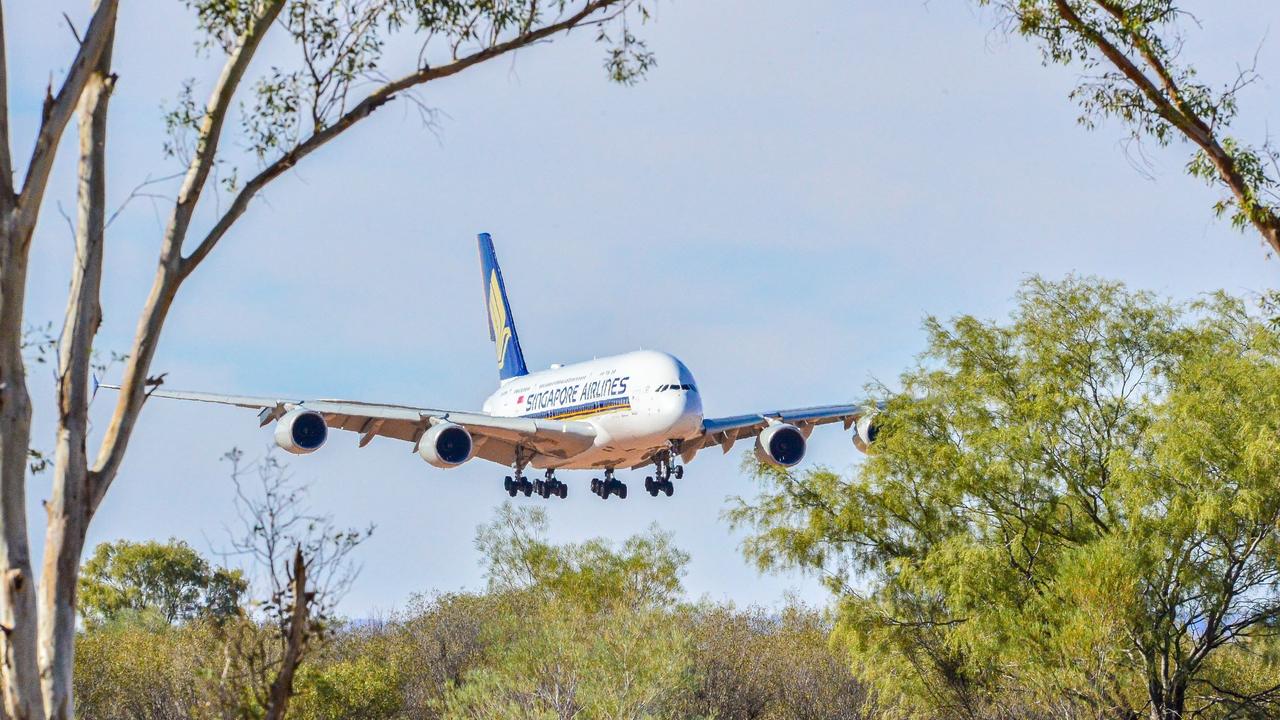
JOB LOSSES SLAMMED
Unions have slammed Qantas’ announcement it will cut 6000 jobs as it becomes a “smaller airline” in the short term to deal with the fallout from the COVID-19 crisis.
The jobs — which represent about 20 per cent of the company’s workforce — will be cut across Qantas and Jetstar in a process of “right-sizing”.
They include pilots, cabin crew, engineers, ground crew who work in baggage handling, fleet presentation and ramp options, as well as corporate staff. Alan Joyce will stay on as the Qantas Group chief executive.
Qantas made the announcement this morning as it entered a trading halt ahead of a share sale as part of its recovery from the virus crisis.
Mr Joyce said while domestic travel was starting to recover, international services may only be back to 50 per cent of pre-virus levels by mid-2021.
In addition to slashing jobs, Qantas will ground at least 100 aircraft for up to a year or longer, and reduce costs by $15 billion as part of its three-year virus recovery plan.
RELATED: New coronavirus measures ban you from drinking alcohol on planes
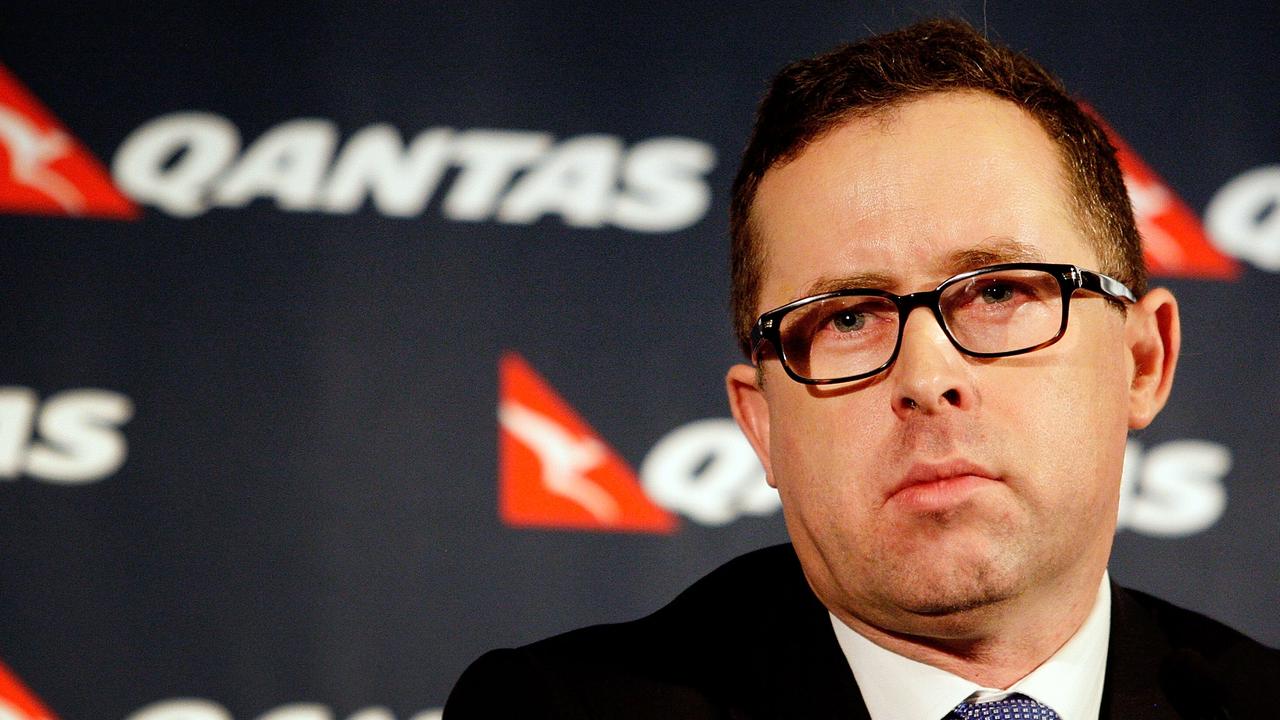
In a statement, Mr Joyce said the staff cull was among the “painful decisions” the company had to make as it dealt with the impact of the COVID-19 crisis.
“We have to position ourselves for several years where revenue will be much lower. And that means becoming a smaller airline in the short term,” Mr Joyce said.
“Most airlines will have to restructure in order to survive, which also means they’ll come through this leaner and more competitive. For all these reasons, we have to take action now.
“Adapting to this new reality means some very painful decisions. The job losses we’re announcing today are confronting. So is the fact thousands more of our people on stand down will face a long interruption to their airline careers until this work returns.”
RELATED: How Frequent Flyer points will change
Separate to the 6000 roles to be axed, Qantas will keep about 15,000 staff temporarily stood down. About half of those staff are expected to return to work by the end of this year, however the rest — particularly those working in international operations — will likely stay stood down for longer.
The Transport Workers' Union (TWU) demanded Qantas put redundancies on hold until the Federal Government announced a review of JobKeeper.
TWU National Secretary Michael Caine also took aim at the company’s use of the corporate phrase “right-size” to describe the devastating job losses.
“These workers, according to Mr Joyce, are the victims of ‘right-sizing’. Right-sizing. After 30 years working for this company, paying Australian taxes and building the proud Australian kangaroo, they are victims of right-sizing,” Mr Kaine said.
“This is a remarkable and unwelcome and unnecessary decision that has been made and announced today by Mr Joyce. Why? Because Mr Joyce knows full well that the Federal Government is in the process of reviewing the JobKeeper system.
“That review should be brought forward urgently. And Mr Joyce should put on hold these redundancies until that review is done.”
Mr Kaine also demanded the Federal Government do more to keep Australia’s flailing aviation industry afloat.
“Right across the globe, Germany, Italy, Hong Kong, Netherlands and others are pumping billions of dollars into aviation,” he said.
“This is not a sector that the government can afford to let fail. This is a sector that has to be ready to open us, particularly our geography as an island at one end of the world. It must be ready to reopen the global gateway for our economy.”
The Australian Council of Trade Unions (ACTU) called the Qantas job cuts “premature” given uncertainty about the future of JobKeeper.
“We still don’t know what the Morrison government intends to do about the JobKeeper program, and this is the problem," ACTU president Michele O’Neil said.
“(Qantas) have prematurely decided to sack 6000 workers when, if there was a proper program of assistance, if we knew that JobKeeper was going to be extended, then of course that’s a better outcome. Because those workers then stay connected to the jobs at Qantas.
“Alan Joyce should reverse this decision, should announce what they’ve done with the millions of dollars of government subsidy they’ve already received, and should work with us to save Qantas workers’ jobs.”
Earlier, Mr Joyce said the staff cuts were made even harder given the company had been on a recruiting drive right before the pandemic hit.
“We’re now facing a sudden reversal of fortune that is no one’s fault, but is very hard to accept,” Mr Joyce said in the statement.
“This crisis has left us no choice but we’re committed to providing those affected with as much support as we can.
“That includes preserving as many jobs as possible through stand downs, offering voluntary rather than compulsory redundancies where possible, and providing large severance payouts for long serving employees in particular.”
In a press conference this morning, Mr Joyce noted 2020 was Qantas’ centenary year and was “meant to be one of celebration”.
“Clearly it’s not turning out as planned,” he said.
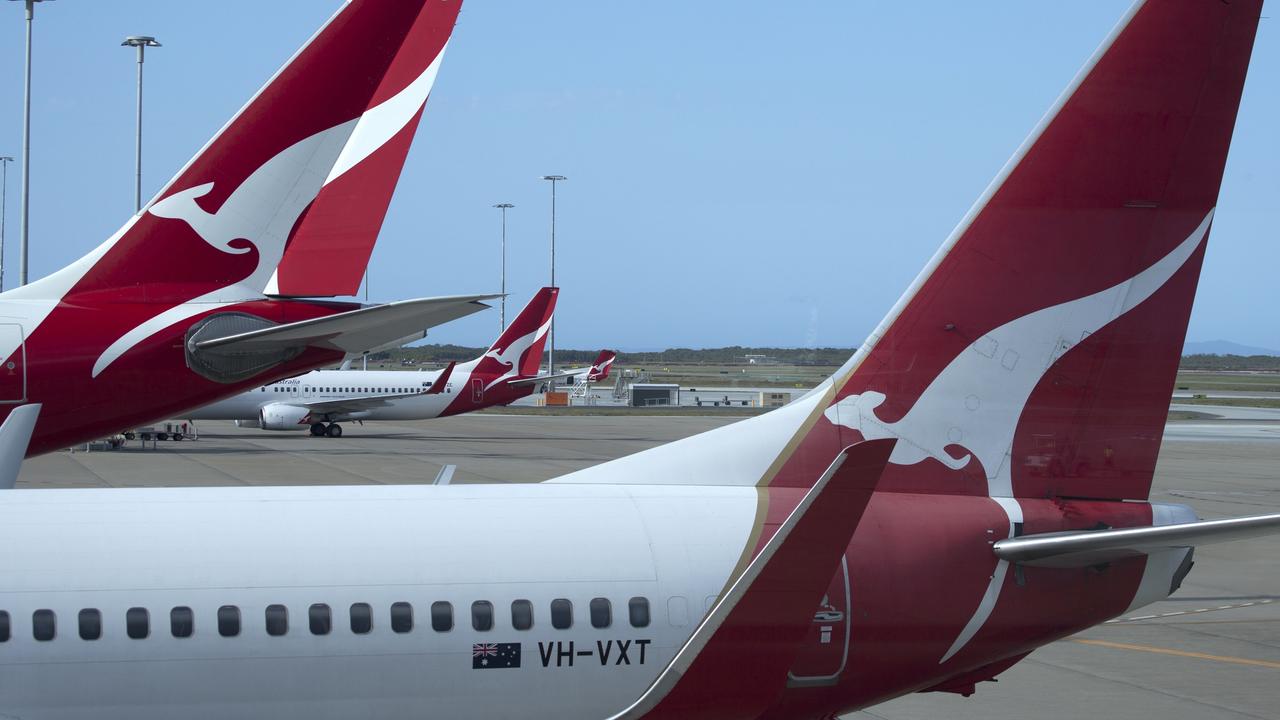
“We draw strength from our long history. We know that – no matter how tough it is in the moment – we’ve always come back from a crisis stronger than before.
“And we draw strength from our beginnings. Because Qantas was founded in turbulent times – straight after a world war and a devastating pandemic.”
Mr Joyce said while the airline would be smaller in the long term it would continue to deliver a high level of care, service and safety to passengers, and support regional areas and Australian tourism.
Prime Minister Scott Morrison called Qantas job losses “heartbreaking”.
“To the Qantas family who are hurting badly today, I extend my deepest, my deepest regret about what has been announced today,” he said.
“They’re passionate about the business and they understand that ultimately if you can’t put planes in the air you can’t make money. But that doesn’t make it any easier.”
Mr Morrison said there were parts of the economy that will feel the effects of the COVID-19 recession “for longer”.
“That is true here,” he said, referring to Qantas.
“These are hard days, Australia, these are very hard days and our strength and our togetherness is tested on almost a daily basis.”

